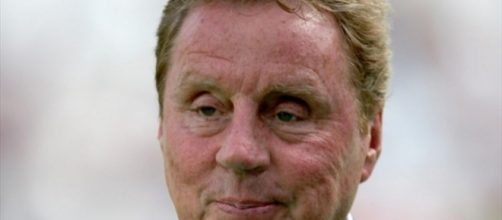Harry Redknapp has made a sudden return to football management. The 70-year-old was appointed Birmingham City manager on Tuesday morning until the end of the season.
He succeeds Gianfranco Zola after the Italian tendered his resignation on Monday evening. Redknapp has brought Steve Cotterill in as his assistant. The pair worked together during Redknapp's last full-time management post at QPR.
The former Portsmouth and Tottenham Hotspur boss has already admitted he won't stay in the post if he can't keep the club in the championship. Birmingham has three games left this season to save their dire campaign which started with lots of promise but has turned into a hideous nightmare.
Wretched run
Zola's final game of his wretched five-month spell in charge summed up Birmingham's dramatic decline in fortunes. A 2-0 home defeat to Burton Albion ended with fans chanting for him to leave. They got their wish hours later when the deflated playing legend admitted to the media his time was up. There was amazement when Zola succeeded Gary Rowett in the post just before Christmas. Now, that decision to hire Zola will go down as one of the worst appointments of recent times. The controversial decision made by Birmingham's owners to axe Rowett could have horrific consequences for the club. They were seventh days before the festive period and just one point outside the playoffs. The Blues now sit 20th after the Bank Holiday fixtures and are deep in a relegation battle.
The statistics back up Zola's nightmare reign. He won just two games out of 24 in charge (home to Fulham and away to Wolves) and mustered an 8% win ratio. It isn't the first time he has walked out of a job in this country. He did the same at Watford in 2013 after five successive home defeats.
Birmingham's remaining fixtures ensure it is going to be a nail-biting end to the season for their fans.
Tough run-in
Currently, just three points above the drop zone, Harry Redknapp's first game in charge of Birmingham will be a Second City Derby on Sunday lunchtime against an ever-improving Aston Villa and a former Birmingham manager in Steve Bruce. Birmingham's last home match is then against playoff hopefuls Huddersfield Town before a potential shootout to stay in the league away at Bristol City on the final day of the season.
They are fighting the Robins', former double European Cup winners Nottingham Forest and ex-Premier League champions Blackburn Rovers to maintain their Championship status.
It isn't the first time Birmingham have been submerged in a relegation battle. When Lee Clark was in charge, they escaped on the final day at Bolton Wanderers in 2014 when Paul Caddis scored a dramatic late equaliser. Relegation has happened before though on the final day of the Premier League campaigns of 2007/2008 and 2010/2011. Redknapp has suffered relegation twice from the top flight with Southampton and QPR. However, he does have a tendency to get the best out of his squad. He kept Portsmouth up against the odds in 2006 and took Tottenham Hotspur into the Champions League quarter-finals five years' later.
Birmingham's run of form is akin to a few examples over the years.
It can happen - ask Norwich and Millwall
In the 1994/1995 Premier League season, Norwich City sat in the seventh spot at Christmas. They then lost the captain and goalkeeper Bryan Gunn to a broken leg and never recovered. The Canaries' won just one match after New Years' Day 1995 and slipped into the Football League which prompted demonstrations by fans against the club's owner, Robert Chase.
A year later, a similar plight happened to Millwall in Division One. They were top of the table in early December before a 6-0 defeat to promotion rivals Sunderland. Mick McCarthy left weeks later to take the Republic of Ireland post and his replacement, Jimmy Nicholl could not halt the Lions' alarming slide down the table.
They were relegated to Division Two on the final day of the season.
Birmingham will not want a repeat of these examples but with players arguing, no form on-the-pitch and in sharp freefall, this could be one of Harry Redknapp's biggest missions and achievements in his extensive management career.

